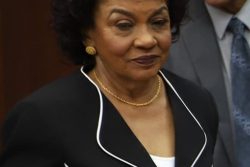Parliamentary parties had enough time to consider the wiretapping bill that was passed by the government without opposition support last week, according to PPP/C whip Indra Chandarpal.
 Although the parties have agreed in principle, at the level of the Parliamentary Management Committee (PMC), to refer all controversial legislation to select committees to try for consensus, this was not done in the case of the Interception of Interception of Communications Bill 2008. The PPP/C passed the bill despite strong objections by the main opposition PNCR-1G as well as the AFC. Opposition members spoke several times of the legislation being “rammed down the throats” of the citizenry, while the AFC had called for its outright withdrawal.
Although the parties have agreed in principle, at the level of the Parliamentary Management Committee (PMC), to refer all controversial legislation to select committees to try for consensus, this was not done in the case of the Interception of Interception of Communications Bill 2008. The PPP/C passed the bill despite strong objections by the main opposition PNCR-1G as well as the AFC. Opposition members spoke several times of the legislation being “rammed down the throats” of the citizenry, while the AFC had called for its outright withdrawal.
Chandarpal, however, told Stabroek News that the bill was introduced just before the August recess and MPs from both sides of the house had ample time to weigh the implications of the bill. “Both sides had time to do their homework,” she said, adding that there were no strong objections to taking the bill through all its stages. “All MPs had a chance to raise objections,” she explained.
Chandarpal also said the bill was not considered by the PMC, which has not met since before the recess.
AFC whip Sheila Holder said the government was fully aware of the agreement but was not prepared to budge on anything. As a result of the administration’s attitude, she said it was unlikely that there would be any compromise at select committee. The AFC had ruled out participation at a select committee level, saying it did not want to be associated with the law in any way.
In a statement issued on Thursday, the PNCR accused the government of rushing to enact the wiretapping law without any Caricom consensus. Noting that the government claimed the legislation is a major initiative to enhance intelligence gathering by the security forces and was agreed to by CARICOM Heads of Government after their recent Security Conference, the party said “…Unlike previous legislation and President [Bharrat] Jagdeo’s recent statements about CARICOM during the Economic Partnership Agree-ment (EPA) debacle, the Government of Guyana rushed to bring this law without any CARICOM consensus or draft.” The party also said none of the opposition political parties was consulted and the government’s consultation with the telephone companies was a mere formality, since none of their concerns was addressed. It added that clouding the legislation under the need to guarantee the security situation the regime is using the opportunity to legalise the infringement of the constitutional rights of citizens without any safeguards and oversight.




